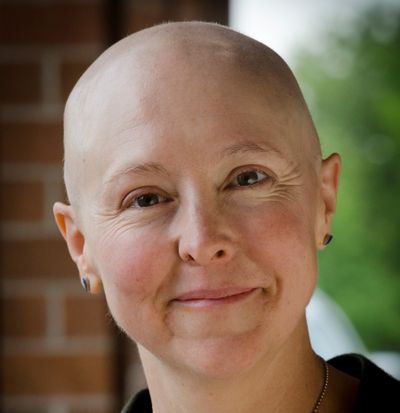Infertility can weigh heavily on men, women

Delaying having children is common these days and we usually assume most of our child-free friends just haven’t gotten around to it yet.
This may be true for some, or they may have decided to not have biological children, but there are others who are faced with the grief of infertility. This week is National Infertility Awareness Week.
Feelings of isolation are common for people facing infertility, even though 10 to 15 percent of couples in the United States struggle with this problem. Many couples try to keep the problem private. They may be motivated by negative self-esteem, guilt, shame, denial or fear of being deluged with “helpful” advice on how to achieve pregnancy. What they often hear is that they waited too long, that a friend of a friend got pregnant by taking a special herb, or that they should just adopt. (Adoption is a good thing, but it is a separate decision to be made – not a substitute for reproduction.) If someone trusts you enough to tell you about infertility issues they are facing, he or she needs someone to lean on and to listen.
Throughout history, infertility has mainly been seen as a female problem, but the reality is far from that. When it comes to couples trying to have a baby, infertility is evenly distributed between the sexes: 30 percent due to male problems, 30 percent female, 10 percent male and female combined and 20 percent unexplained. Age is a factor for both.
Male fertility begins to gradually decline around age 30. There is a more rapid decline at 40. A woman’s chances of having a baby decrease 3 to 5 percent every year after age 30. There is a steeper decline after 35. Risks of birth defects and pregnancy complications also increase as the parents age.
When seeking answers from a physician for the cause of infertility, men and women can expect myriad tests, ranging from relatively noninvasive blood draws to minor outpatient procedures.
Treatments for infertility depend on the causes and can include surgery, medication and assisted reproduction technology. Fertility treatment is not without risks such as multiple pregnancy, ovarian hyperstimulation syndrome (which can cause severe enough abdominal pain to require hospitalization), bleeding, infection and low birth weight. While two-thirds of couples seeking treatment for infertility go on to have biological offspring, it is not without stress, grief and a great deal of expense and frustration.
Infertility, whether you seek treatment for it or not, comes with a host of emotions. Be aware of how you are feeling and situations that cause you additional stress. Practice relaxation (meditation, yoga, exercise, etc.) as much as possible. Have realistic expectations and try to prepare yourself mentally for any outcome. If you can, talk about how you are feeling as openly as possible with someone close.
Most of all, if you are facing infertility, seek out the people in your life who love you and will be there for you. If you know someone dealing with infertility, it makes a difference to be the person who brings some extra love into his or her life and to be there no matter what happens.